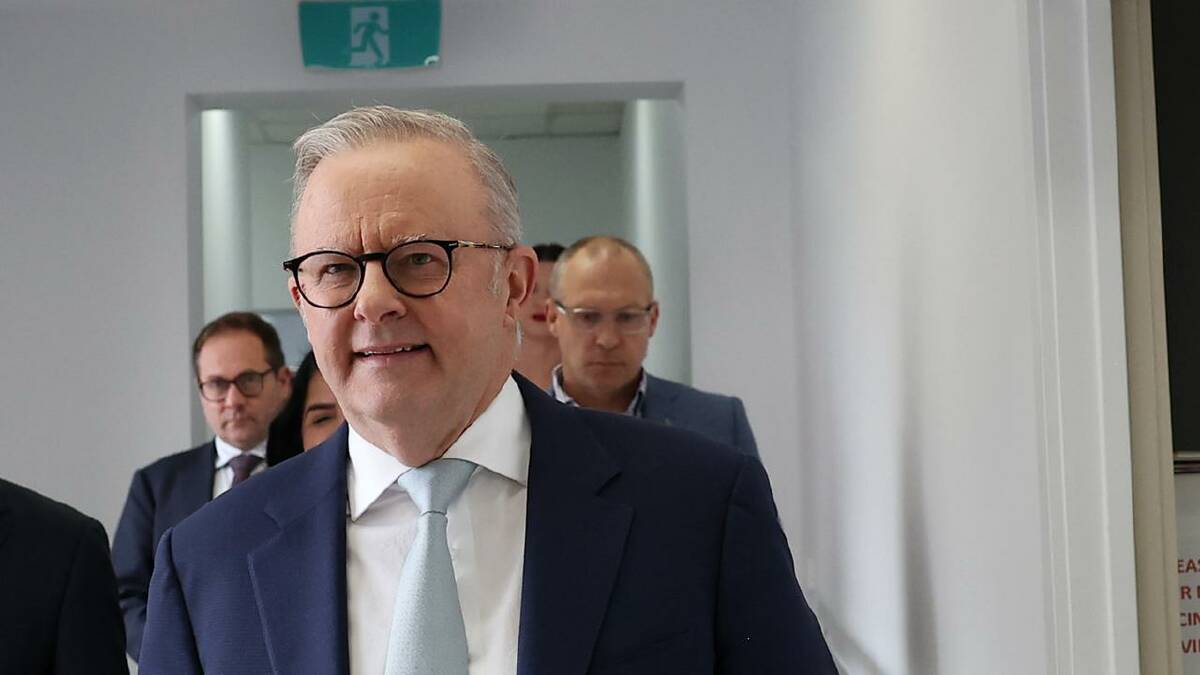
Failing to recognise a Palestinian state would reward the Israeli government for its "campaign of genocidal violence", a former ambassador to Israel has warned, as Australia considers its next diplomatic moves.
Subscribe now for unlimited access.
or signup to continue reading
See subscription optionsAustralia has begun co-ordinating with other nations on the issue as France, Canada and the UK prepare to recognise the state of Palestine at a United Nations meeting in September amid a humanitarian crisis in Gaza.
Though the federal government has said recognition is a matter of "when, not if", it has been hesitant to commit to a deadline and the coalition has raised concerns such an action could be seen as a reward for designated terrorist organisation Hamas.

But Australia's former ambassador to Israel Peter Rodgers dismissed such arguments as "nonsensical", noting there were "nasty people" on both the Israeli and Palestinian sides.
"Not recognising a Palestinian state rewards Israel," he told ABC radio on Thursday.
"It rewards the government of Benjamin Netanyahu for ethnic cleansing and apartheid in the West Bank.
"We need to be very careful of pointing the finger in one direction and forgetting what's going on, on the other side."
A genocide case has been brought against Israel at the International Court of Justice, which is yet to rule on the matter, but Mr Netanyahu's office called the allegations "false and outrageous" and his government has repeatedly claimed it only targets Hamas and not civilians.
More than 50,000 children have been killed or injured by Israel since October 2023, UNICEF said.
Prime Minister Anthony Albanese has said the recognition of Palestine would need to guarantee Hamas played no role in the future nation, and Foreign Minister Penny Wong has repeatedly emphasised the Palestinian Authority has condemned and sought to distance themselves from the terrorist group.
Hamas has effectively governed Gaza since violently defeating the political party Fatah, which now controls the Palestinian Authority that exercises partial civil control in the West Bank.
The Palestinian Authority is currently "pretty useless", Mr Rodgers said, but recognition could provide an avenue for change.
"There is an opportunity to work with other Palestinians, to work towards reforming the Palestinian Authority ... giving it meaningful power," he said.

Mr Albanese spoke with Palestinian Authority President Mahmoud Abbas on Tuesday, when he reiterated Australia's commitment to a two-state solution in the Middle East that would allow Palestine and Israel to co-exist, before discussing the two-state solution with French President Emmanuel Macron.
"The entire international community is distressed by what we're seeing happening in Gaza," he told reporters in Melbourne.
"We want to see commitments from the Palestinian Authority - commitments of their governance (and) reforms."
More than two million people in Gaza are now facing high levels of food insecurity, United Nations sources have found.
Israel denies there is starvation in the besieged strip despite international human rights groups decrying its offensive in Gaza and attributing deaths to starvation.
Mr Rodgers was one of many former Australian diplomats who signed an open letter to Prime Minister Anthony Albanese, which is being circulated on social media, calling on Australia to urgently recognise a state of Palestine.
More than 140 of the 193 UN member states already recognise the state of Palestine, including European Union member states Spain and Ireland.
Violence in Gaza reignited after Hamas killed 1200 people in Israel and took about 250 hostages on October 7, 2023.
Israel's military response has since killed 60,000 people, according to local health authorities.
Tens of thousands of Australians took part in pro-Palestine protests over the weekend, including at least 90,000 who rallied at the Sydney Harbour Bridge, and both Students for Palestine and the National Union of Students have called for students to walk out of class on Thursday as part of a demonstration.
Opposition home affairs spokesman Andrew Hastie has taken issue with domestic protests.
"This is Australia. Not the Middle East," he said in an interview with Sky News posted on his social media.
Australian Associated Press

